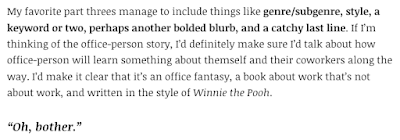In Episode 8 of my novel, Most Famous Short Film of All Time, set in early 2015, there's a passage about the Boston Marathon:
"Not last April but the one before, the Marathon bomber hid in a driveway in Watertown. He had to hide somewhere, so he found a boat, climbed in, and lay bleeding under a tarp. An infrared camera from a helicopter saw the outline of his body. Is that glamour or pishogue: the way the terrorist appears, or the way the cops see the terrorist? Both, I suppose. It’s the same gun, whether you’re pointing or being pointed at. Anyway, the infrared image printed in the newspaper looked like the cover of Life of Pi: the curled outline of the fearsome foe inside the lifeboat."
Once I wrote a little article about the Marathon bombing. I'm reposting it here, for anyone who'd like that context.
On Monday, April 15, 2013, two bombs exploded on Boylston Street in Boston's Copley Square near the finish line of the marathon held on the Patriot's Day holiday. Packed with small nails to maximize damage, the bombs injured almost 200 people, three of whom died.
The Boston Marathon is a world-renowned annual outdoor event that draws about 20,000 pre-qualified athletes and a half-million spectators. The bombs had been placed in trash cans outside a sportswear store and a coffee shop.
Image: The finish line of the 2013 Boston Marathon, before bombs exploded and the race was called off. Source: Wikimedia Commons
First responders rushed to the aid of the wounded before the smoke had even cleared. The police locked down Copley Square as a crime scene and immediately began communicating to the runners – many of whom were still streaming across the 26-mile course toward the finish line, not yet knowing what had happened – that the race was over and that they could not proceed. Doctors performed many amputations and other life-saving treatments at nearby hospitals.
Due in part to the immediate uncertainty about the city's safety, a number of significant events that evening were canceled, including a Boston Symphony Orchestra performance and a Boston Bruins hockey game. But the next day, most people were back to work.
The day after the bombing, Massachusetts Gov. Deval Patrick and Boston Mayor Thomas M. Menino announced they would fundraise for the victims through a new charity. A simple placeholder website said "The One Fund Boston" would seek charitable organization status retroactive to April 16. The financial company John Hancock made the first donation of $1 million. The Boston Bruins and the Pittsburgh Penguins announced they would auction off jerseys to support the fund.
The Red Cross said they had received sufficient blood donations. The Salvation Army was operating mobile kitchens. The Kraft family offered to match $100,000 donated through the New England Patriots and New England Revolution Charitable Foundations. The Vince Wilfork Foundation announced that all donations through April 2013 would go to the bombing victims.
Funds to support individual families affected by the bombing sprang up on various online crowdfunding sites. Many raised hundreds of thousands of dollars within a single day, setting fundraising records for what was then relatively new technology.
The April 16 print edition of the Boston Herald carried a number of poignant articles. Writing from Washington, D.C., Kimberly Atkins reported "eerie scenes of caution, alert, fear and sadness reminiscent of the days after the 9/11 attacks. In a place where the threat of terrorism is an ever-present reality, the attack in Copley Square was taken personally." Michael Graham wrote that the attack "did something to me that eight years of living, writing and talking in this city couldn't: It made me a Bostonian...Today, it's my town."
The Boston Globe newspaper dropped its paywall, temporarily displaying a message: "BostonGlobe.com is currently available to all readers."
On Thursday, April 18, thousands of people came to an interfaith prayer service in honor of the victims at the Cathedral of the Holy Cross. Mayor Menino, recovering from a lengthy illness and a recent surgery for a broken leg, rose from his wheelchair and addressed the crowd: "No adversity, no challenge, nothing can tear down the resilience in the heart of this city and its people." President Obama also appeared and exhorted the city: "We finish the race."
Especially because two active members of the Humanist Community at Harvard were severely injured in the bombing, leaders of that community made an effort to help shape the interfaith service so that it could include and represent people who do not believe in God. Their effort was unsuccessful, but in the face of that challenge, they planned their own vigil to be held in a park the coming Sunday. They planned to give atheists, agnostics, and humanists a place to gather, grieve, and express their emotions.
Police identified the two men believed responsible for the bombings. Tamerlan Tsarnaev was killed in a standoff with police in the early hours of the morning on Friday, April 19. The cities of Boston and Cambridge and other surrounding towns were put on lockdown for the entire day (6 a.m. to 6 p.m.) while police searched door-to-door for his younger brother, Dzhokhar Tsarnaev. (After deciding not to move the trial, jury selection began in Boston in January 2015 from the largest pool ever in Boston. Tsarnaev was eventually sentenced to death.)
Public transit was shut down, residents were not permitted to leave their homes, and most businesses were closed. (Dunkin' Donuts, however, remained open at strategic locations to provide free aliment to cops.)
This article was originally posted to Helium Network, which went offline at the end of 2014.
Chaya Raichik, "Libs of TikTok"

![Alejandra Caraballo tweets Feb 20, 2023: 'In 1986, the New York Times published a William F Buckley column calling for the forced tattooing of those with HIV/AIDS on their FOREARM. Had this been enacted, there certainly would've been holocaust survivors getting a 2nd government mandated tattoo.' She included a screenshot of the old NYT article: ‘But if the time has not come, and may never come, for public identification, what then of private identification? Everyone detected with AIDS should be tatooed [sic] in the upper forearm, to protect common-needle users, and on the buttocks, to prevent the victimization of other homosexuals.’](https://blogger.googleusercontent.com/img/b/R29vZ2xl/AVvXsEjrJ9pdqHszw9UpGN3PBCnJPMa_6vLLAt5-UtpGTdc7KwwxuLsP4A0o41O7XkdE0TSZHrzoGACPFFkRXtRzUpGVMsvDpiovcEPPEt6mRs7lInKjOi46OVKBTMwUfIYPbgeO6h6HQpboL2sZ8EydiULVgOcRqZdInJz0b33kC34K3xvzLx66bWi8TQzSccY/s1600/tattoo.png)
























